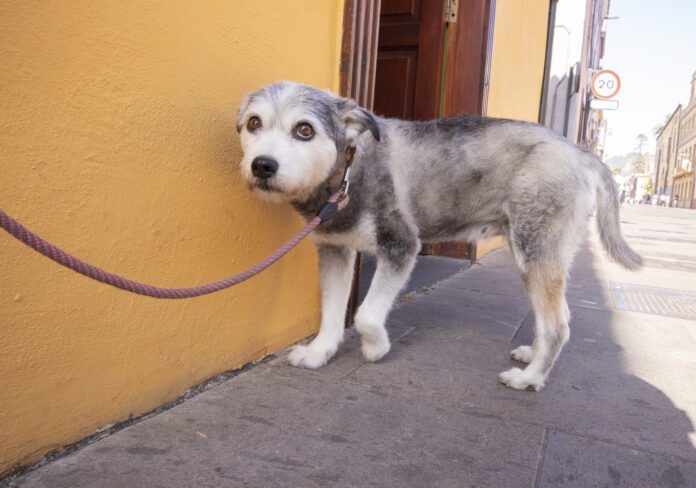If your dog’s tail is down and he’s not acting like his normal self, something is likely bothering him either emotionally or physically—or both.
What It Means When a Dog’s Tail is Down
When a dog’s tail is down, it may signal:
- Nervousness
- Fear
- Uncertainty
- Stress
- Appeasement/submissiveness
- Not feeling well
When trying to decode what a tucked tail might mean, first consider how your dog usually holds his tail. Some breeds, like Labradors, Golden Retrievers and German Shepherd Dogs, naturally carry their tails in a downward position. However, if your dog’s tail is down when it’s normally upright—or his typically downward-sweeping tail is tucked up under his rump—it’s time to pay attention. When trying to understand the cause of a downward tail, look at both the whole body and the situation.
Is the Dog with His Tail Down Acting Weird?
Determining context can go a long way toward helping your pooch feel better. Is he afraid of something? If so, remove “the thing” or help him get away from the situation and see if he goes back to being his happy-go-lucky self.
Other signs you might see when the dog with his tail down is afraid include:
- Cowering/shrunken appearance
- Ears down
- Lowered eyes
- Whale eye
- Looking away/Head turn
- Lip licking
- Yawning
- Closed/tight mouth
An often-misinterpreted appeasement gesture is the squinty-eyed, toothy “smile.” This is actually a gesture of submission, sometimes paired with a downward or even tucked tail. So is rolling over when combined with other signs. In this situation, resist the urge to rub your dog’s belly. He is asking to be left alone, not for tummy time! These gestures can indicate appeasement, so what your dog is saying is “please go away, I’m uncomfortable.” Submissive urination happens sometimes too. Again, determine the context and arrange your dog’s environment so he’s more comfortable. If this behavior persists, reach out to a fear-free trainer.
Is the Dog with HisTail Down Sick?
Another possibility for a dog holding his tail down or tucked might be that something is physically wrong, either with the dog’s tail (i.e. sprained tail, limber tail syndrome, etc.) or something else. Even if the tail itself is fine, dogs often tuck their tails if they are uncomfortable or in pain. Look for additional signs your dog might not be feeling well such as vomiting, diarrhea, hiding, lack of appetite, or lethargy. If it seems like something is wrong—or if you’re not sure—take him to a vet for a health check.
When it comes to a dog with his tail down, watch closely and pay attention to what he is trying to tell you. Dogs say a lot with their tails. To learn more check out “Dog Tail Signs: What’s Your Dog’s Tail Language?”






